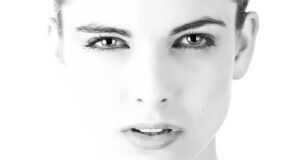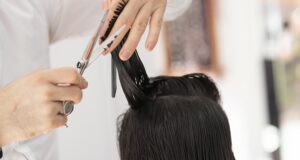Vitamins for Hair
Hair that looks healthy and beautiful gives the person happiness and self-confidence. Hair loss and baldness are one of the most common cosmetic problems of our time. These problems, which can be seen in women, men, young and old, have solutions in the developing medical world. People who want to have healthy hair first try to find a solution with methods that do not require surgery. Among these, the most notable today is specially prepared vitamin supplements. Vitamins that are good for hair can be evaluated by many people. Vitamin supplements can be taken for hair loss. You can read the rest of our article for more detailed information about vitamins for hair.

The secret of having strong and vibrant-looking hair is actually based on quality of life and environmental factors. Harmful factors such as intense work stress and hustle and bustle of life, bad eating habits, lack of vitamins, insufficient water intake, smoking, alcohol, irregular sleep, air pollution, exposure to excessive heat can have serious negative effects on your hair health.
Which Vitamin Deficiency Occurs Hair Loss?
Vitamin deficiency can directly affect hair health. Due to the hectic pace of life, it is often not possible to spare time for regular nutrition. For this reason, the vitamins taken from the foods consumed may be insufficient to meet the needs of your body. As a result, your hair may become lifeless, sparse, and hair loss may occur. Vitamins for hair can be used against hair loss. It is important to have knowledge about vitamins that are good for hair. Thus, people with hair loss can learn which vitamin deficiency causes hair loss and can prevent this problem thanks to vitamins for hair.
Vitamins for hair are very diverse. Vitamin A, vitamin D, vitamin B, vitamin E, zinc and iron are some of them. Each vitamin has different roles and functions in the body. It should not be forgotten that vitamin excess as well as vitamin deficiency is harmful to the body and hair. The doctor decides which vitamin and how much is missing in your body. Supplementation of the missing vitamins is recommended by your doctor as a result of blood tests and tests performed in a full-fledged hospital. Hair nourishing vitamins can be found in tablets or in hair care products.
Vitamin For Hair Loss
Vitamins and minerals taken from food nourish your hair follicles and scalp. However, in cases of vitamin deficiency for various reasons, hair may lose its healthy and strong appearance. Vitamins that are deficient in your body as a result of irregular nutrition can be supplemented with vitamin supplements taken with the approval of a doctor.
Using vitamins for hair can strengthen and thicken hair, resulting in fuller hair.
Vitamin A: In addition to supporting the development of all cells in our body, vitamin A also contributes to the strengthening of the immune system with its antioxidant effect. It supports the development of all other organs such as hair, eyes, skin, bones, liver. It helps to maintain the moisture balance of the hair. Thanks to the production of sebum, it contributes to the nourishment of the hair follicles and scalp. Vitamin A deficiency can cause itchy scalp and dandruff. Excessive intake of vitamin A can damage the liver by creating toxicity in the body. Among the foods containing vitamin A, vegetables, eggs and dairy products can come to the fore. Care should be taken to consume these foods in appropriate amounts.
Vitamin B3 (Niacin): Niacin is among the vitamins that are good for hair. It supports the body’s blood circulation and energy production. It is important for the health of the scalp. In vitamin B3 deficiency, weakness and lifelessness can be seen in the hair.
Vitamin B5 (Pantothenic Acid): It is a vitamin that cannot be stored in the body. Vitamin B5 is involved in the conversion of fat, carbohydrates and proteins into energy in the body. It helps to strengthen the skin barrier, moisturize the scalp and add shine to the hair.

Hair loss can be seen in pantothenic acid deficiency.
Vitamin B6 (Pyridoxine): It provides support to the body for stronger hair by increasing the regeneration rate of the cells in the scalp.
Vitamin B7 (Biotin): Also known as Vitamin H. Biotin plays an effective role in strengthening the scalp. Hair breakage and lifelessness are common in biotin deficiency. In addition, its deficiency can cause nail and skin problems. Biotin deficiency may be genetically based, but it can also occur in pregnant women. In vitamin B7 deficiency, hair turns white quickly and hair loss can also be seen. Foods high in biotin include rice, eggs, red meat, vegetables and fruits.
Vitamin B9 (Folic Acid): Folic acid, also called folate, ensures the production of new cells and the proliferation of blood cells. It supports healthy hair growth. Helps prevent hair breakage. Vitamin B9 can be used to treat alopecia (hair loss).
Vitamin B12: The main function of vitamin B12 in the body is to carry oxygen to the tissues. It helps increase iron absorption. It can strengthen hair and reduce breakage. Vitamin B12 is in the group of vitamins for hair.
It can have a positive effect in solving the problem of hair loss.
Vitamin C (Ascorbic Acid): Vitamin C is water soluble. Increases collagen production in the body. It has antioxidant properties. In this way, it can protect the body from the harmful effects of free radicals. Vitamin C is necessary for the absorption of iron from the intestines.
Vitamin D: It is the basic vitamin taken and synthesized through the skin from the sun’s rays. People who work indoors for long hours and live in areas where the sun is low may suffer from vitamin D deficiency. Hair loss can occur in vitamin D deficiency. Vitamin D is among the vitamins that nourish the hair. It can also affect other systems in the body. High blood pressure, heart ailments, digestive disorders may occur. Mood disorders such as depression and fatigue can also be caused by vitamin D deficiency. Various fish, avocado, nuts, eggs, milk are some of the foods that contain vitamin D.
Vitamin E: Vitamin E is very important in hair and skin care. It helps to accelerate cell regeneration. It supports the defense mechanism against free radicals that are harmful to the body. By providing moisture support to the hair, it makes an important contribution to its healthy growth and shine. It helps to give shine and softness to the hair fiber. Green vegetables, sunflower seeds, peanuts, spinach are foods rich in vitamin E.
Since vitamin E is fat soluble, it is beneficial to take it with fatty foods.
Zinc: Zinc mineral helps to repair hair tissue and support hair follicles. It affects the oil production in the hair. It helps to accelerate wound healing, support the growth of cells and strengthen the immune system. Foods containing animal protein are found in beans, grains and legumes. Zinc deficiency may increase with age. Delay in wound healing, taste and sensory disturbances may be seen in people with low zinc levels.
Iron: Iron is a mineral stored in the body. Hair loss and respiratory system problems may occur in iron deficiency. Fatigue, shortness of breath, pale skin may occur. Generally, it can be effective in the emergence of androgenic alopecia (female pattern hair loss).
Foods rich in iron include red meat, poultry, and legumes.
Selenium: It contributes to the health of the scalp. It also helps in preventing dandruff formation. Meat, chocolate and fish contain plenty of selenium.
L-Cysteine: It is an amino acid that is effective in strengthening the bonds between the hair fiber and the hair follicles. It allows to increase the production of keratin. It is also important for the health of hair and nails.
L-Lysine: It is one of the amino acids required for collagen production. It provides calcium absorption. It helps to have healthy growing hair.
Vitamins That Are Good For The Hair And Vitamins That Nourish The Hair
Hair loss is a health problem that can be successfully treated when intervened early. It is not correct for patients who experience hair loss to immediately apply to hair transplant clinics. Sometimes the reason for your hair loss complaint may be a simple vitamin deficiency and this problem can be solved with vitamin supplements. Patients can be supported with vitamins that are good for the hair. It may not be possible to give a definite answer to the question, “Which vitamin deficiency causes hair loss?” Because most of the vitamins in our body are effective on hair health. The main ones of these vitamins are vitamins A, C and E, and B group vitamins. If the hair does not regain a healthy structure with vitamin support, hair transplantation method can be applied. The doctor should decide on the answers to questions such as which vitamin deficiency the patient has and what amount of vitamins for hair should be used. First of all, a doctor’s examination should be performed, and the necessary treatment should be decided as a result of the examinations.
Page content is for informational purposes only. Please consult your doctor for treatment.



